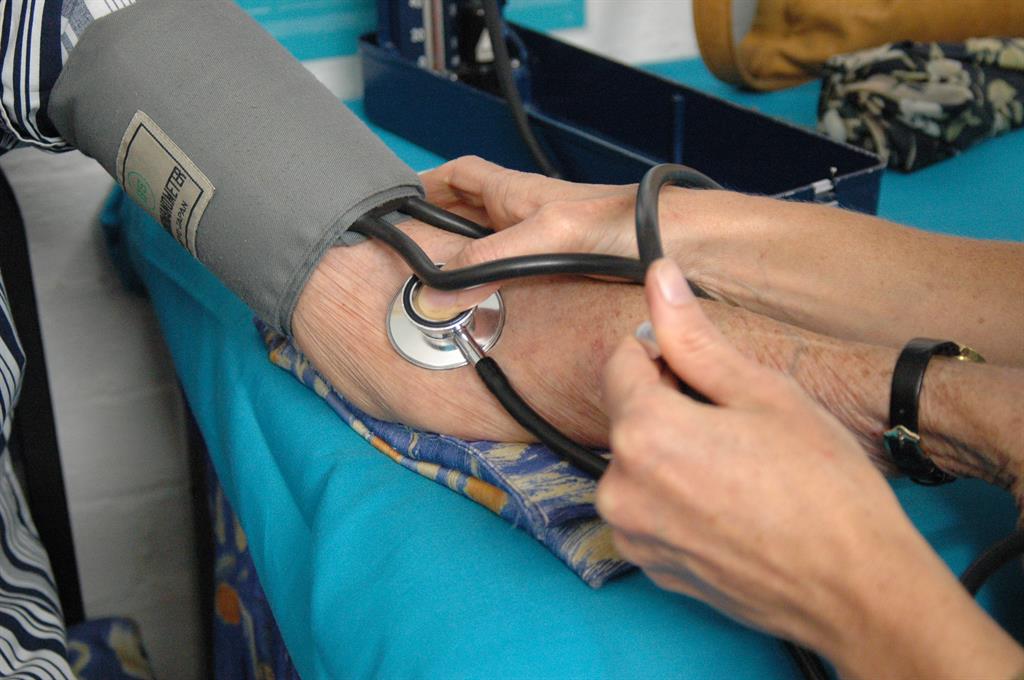Srinagar: Hypertension is the major contributing factor to the burden of non-communicable diseases in Kashmir, a new study by Government Medical College, Srinagar, has revealed.
Entitled “Prevalence of Hypertension and its Association with Waist Circumference in Adult Population of Block Hazratbal, Srinagar, the 2018 study was authored by Abdul Rouf, Mahbooba Rasool, Salim Khan SM, Inamul Haq, Abdul Hamid, Khalid Bashir and Sheikh Mohommad Saleem of Government Medical College, Srinagar.
The study was carried out with an objective to find out prevalence of hypertension in the valley by taking sample size of 400 subjects above the age of 18.
“In Kashmir, only 57% with hypertension know their condition, 40.6% receive anti-hypertensive treatment and only 13.2% achieve the target of controlled blood pressure range. 80% of the burden is attributed to cardiovascular diseases”, says the study.
According to the study, high blood pressure is not only turning out to be cause for ischemic heart disease and stroke but also the main risk factor for morbidity and mortality as a result of premature cardiovascular events.
The study further attributes the genetic and environmental factors as the reasons for blood pressure. It includes age, gender, body mass index, physical activity, diet and stress levels.
Dr Afaaq Jalaali, senior physician, said uncontrolled hypertension results in an end organ damage including kidneys, heart and brain.
“Once the hypertension gets off limits, it slowly brings out a change in the vessels by affecting their smoothness and hindering the blood flow. As a result, the chances of blood clot increases, and can cause early deaths through cardiac, renal and brain damage”, he said.
Dr Afaaq said that there is a need for healthy lifestyle in terms of a routine exercise and healthy diet since genes cannot be changed. “Prevention and early diagnosis are undoubtedly the way forward. People with hypertension, a family history and more than two risk factors must be screened every six months to one year,” said Dr Afaaq.
Discover more from The Kashmir Monitor
Subscribe to get the latest posts to your email.




